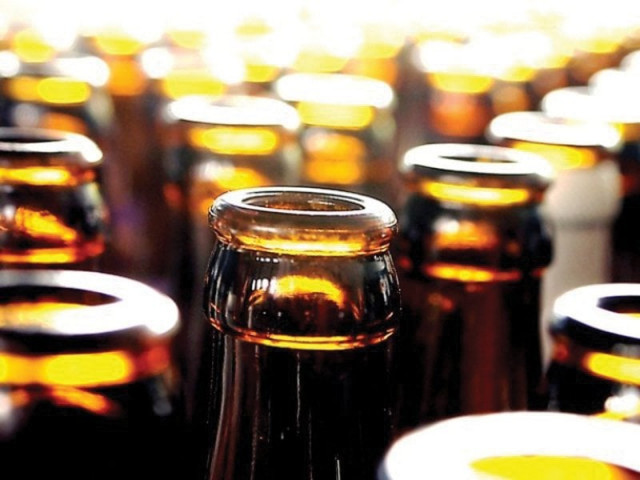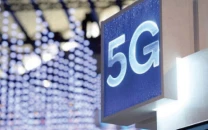Rescinded: The folly that was capacity tax
FBR’s collection took a hit, move was a result of large bottlers’ influence.

Capacity tax was introduced on the promise of multinational soft drink makers that revenue collection will increase by 25%; however tax collection actually declined. PHOTO: FILE
Almost a year after it was introduced, the government rescinded the infamous capacity tax on soft drink makers in the Finance Bill 2014 in what could be termed as anticlimax to the bitter war between domestic beverage companies and their foreign competitors.
If there was one business issue related to taxes and its impact on industry that received wide media coverage and tested the nerves of Federal Board of Revenue (FBR) officials then it has to be this tax.
Yet, there was slight mention of it in the finance bill. “The capacity regime has led excessive litigation and the Lahore High Court has passed an order against the scheme. Therefore, the existing scheme shall be reverted to normal tax,” the brief mention said.
The regime basically used the production capacity of plants to determine tax instead of actual production. It was introduced on the promise of multinational soft drink makers that revenue collection will increase by 25%. The tax collection actually declined.
Small bottlers were against such an arrangement as they argued that large bottlers together control around 90% of the market, allowing them to offload their excess production anytime they wanted.
On the other hand, the others had higher capacities in relation to the actual production because of the seasonal sales – window of opportunity spread over just few weeks.
The output of the industry did go up. According to Federal Bureau of Statistics, soft drink production rose 34% to 1.54 billion litres in July-March 2013-14 from 1.15 billion litres in the same period previous year. Price of various soft drinks also saw a double digit rise.
But the FBR says tax collection up till January 2014 actually dropped 17%, which translates into a shortfall of roughly around Rs4 billion compared with the target.
“Billions of rupees have been lost and someone must give answers,” said Isphanyar Bhandara, the CEO of Murree Brewery. “The production has gone up but not the tax collection. Why did that happen?”
Murree Brewery, the country’s largest liquor producer, receives 50% of its revenue from non-alcoholic beverages, which include carbonated drinks and fruit malts. Its carbonated products were affected by the new tax system.
It was one of the many companies that approached the court, which ultimately annulled capacity tax last months.
Seven months after the tax was imposed in July 2013, the FBR realised its folly and tried to amend it by raising the tax from 60% to 70% in absolute terms. But this time multinationals also took the legal course and derailed the tax regime.
Ultimately, a large bottler got a stay order from the Lahore High Court against the capacity tax.
All along this time, it was the small bottlers and local Pakistani brands, which took the worst hit. The most notable casualty was Mehran Bottlers, the maker and distributor of Pakola in Karachi region (most of the Pakola products are now being supplied by Sukkur-based Gul Bottlers).
While some companies sought the court’s help to block the new tax, many rolled back capacity by dismantling filling machines in fear of paying penalties.
It remains unclear what took the FBR so long to act. But industry people say a strong lobby in Punjab had influenced the PML-N government in its first year in power.
Tax history
First introduced in 1990, it is widely believed that the capacity tax method of collection was the result of aggressive lobbying by multinationals. It was rolled back in 1994 but, by then, 10 beverages and 13 juice plants had already shut down.
Multinational brands control over 90% of the beverage market. They are represented by bottlers who have territorial control – each brand has multiple bottlers.
Newspaper clippings of March 1994 show the extent to which multinationals went in favour of capacity tax. Protests, rallies and strikes were staged from Karachi to Lahore by the bottlers of large brands.
Mitchells is one of the firms, which closed its juice plant during the period.
The capacity tax also prompted some unusual behaviour on the part of executives of a respected corporation.
During hearing of the case in LHC, the judge asked a senior tax official to identify himself and share his views on the tax. A man got up and expressed complete confidence in the tax regime.
It later transpired the man was actually the CFO of one of large bottlers in favour of capacity tax. He would have been charged for impersonating a government official if not for the judge taking a lenient view after the company said their CFO is mentally unstable.
Published in The Express Tribune, June 9th, 2014.
Like Business on Facebook, follow @TribuneBiz on Twitter to stay informed and join in the conversation.



















COMMENTS
Comments are moderated and generally will be posted if they are on-topic and not abusive.
For more information, please see our Comments FAQ